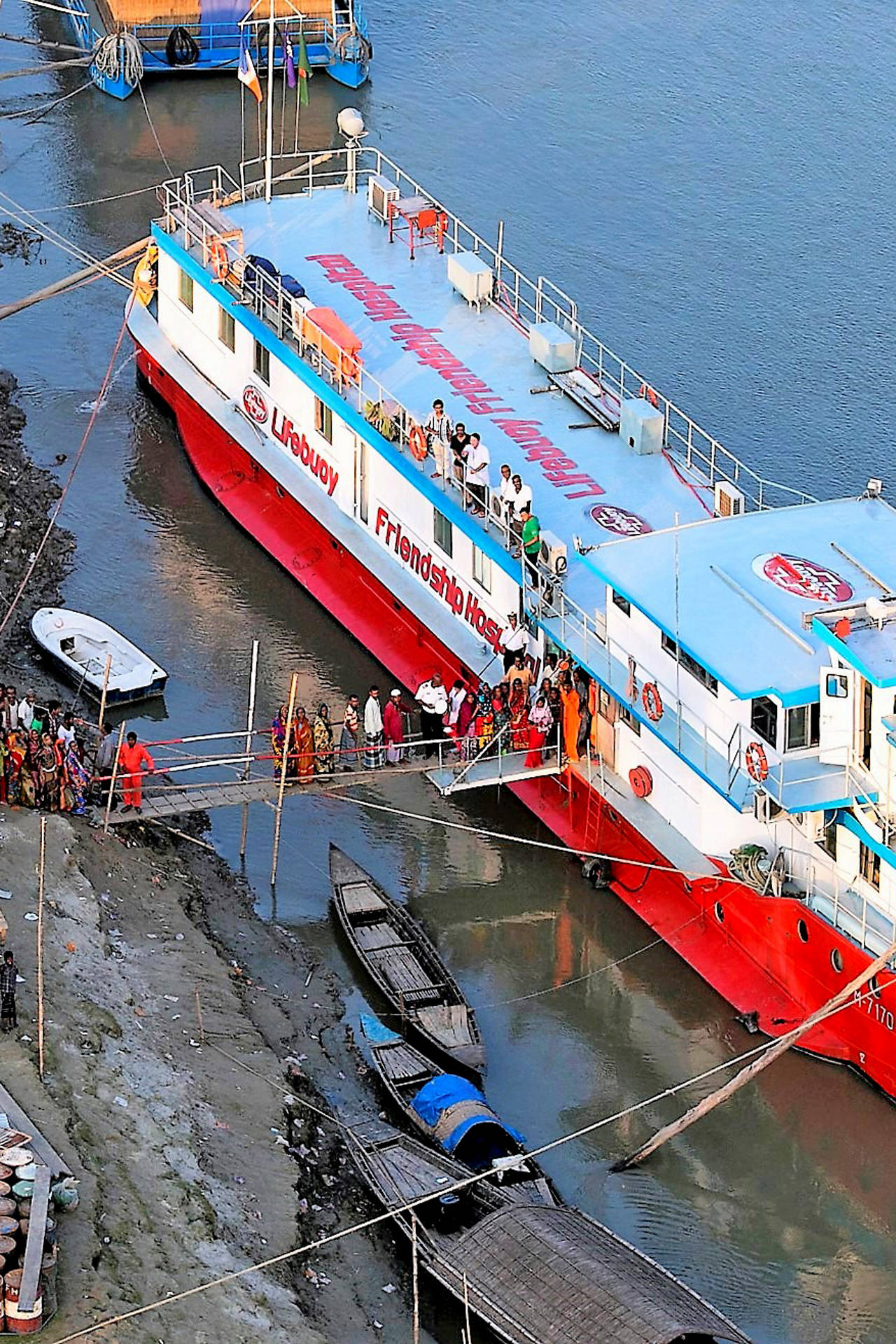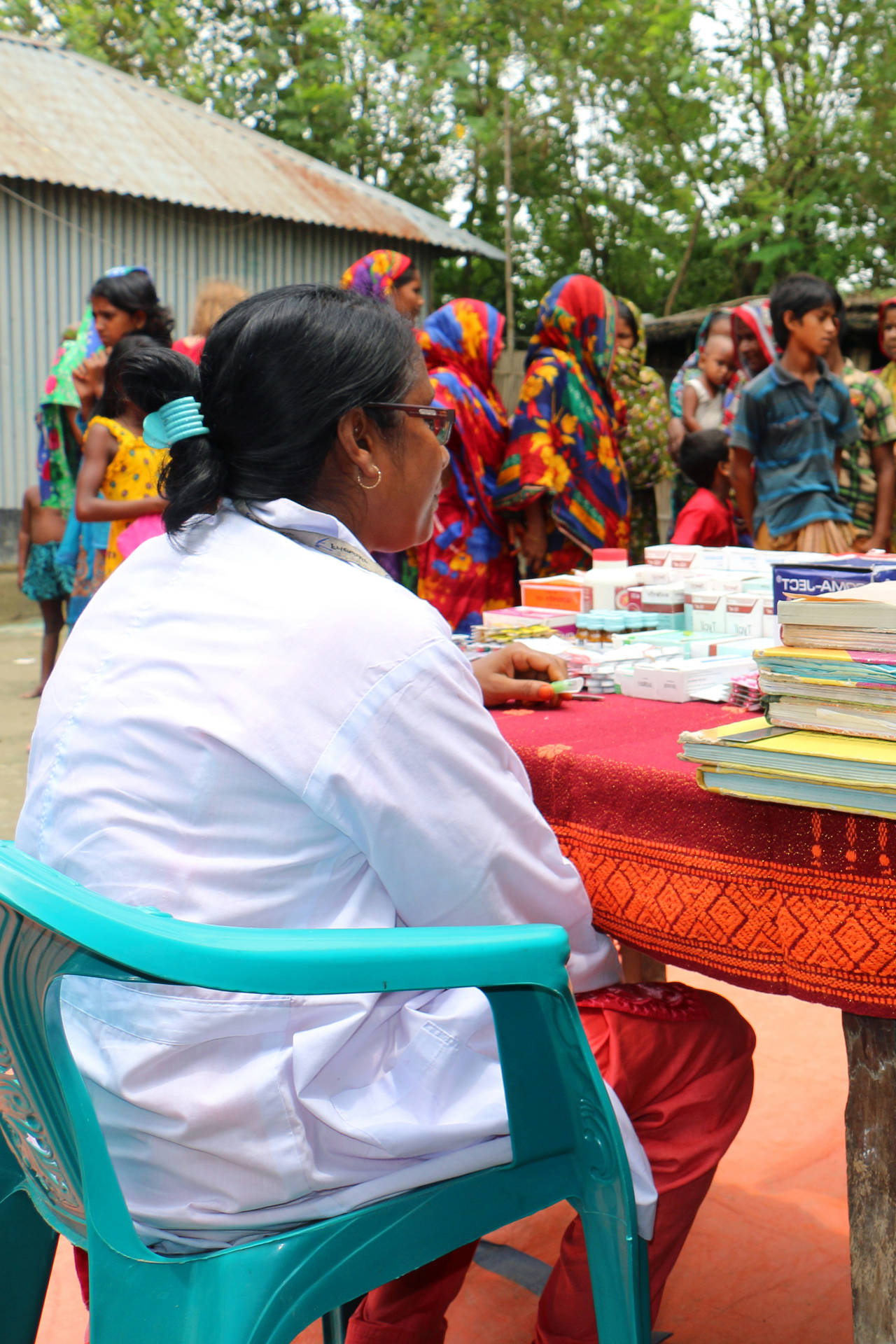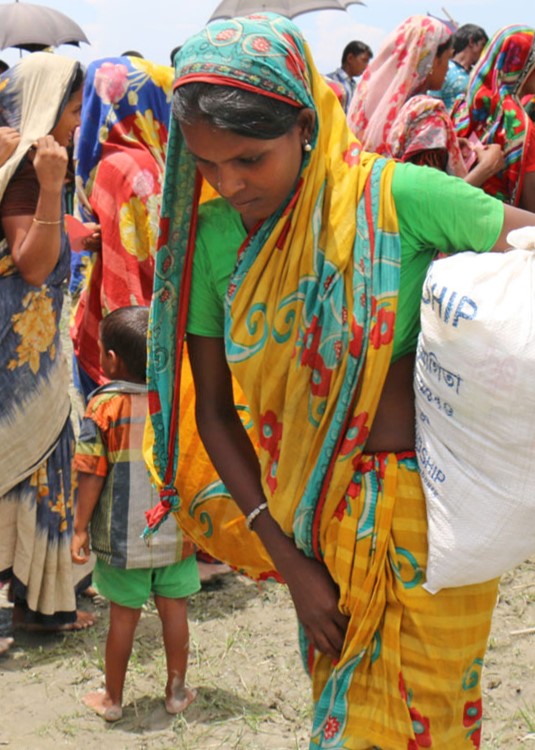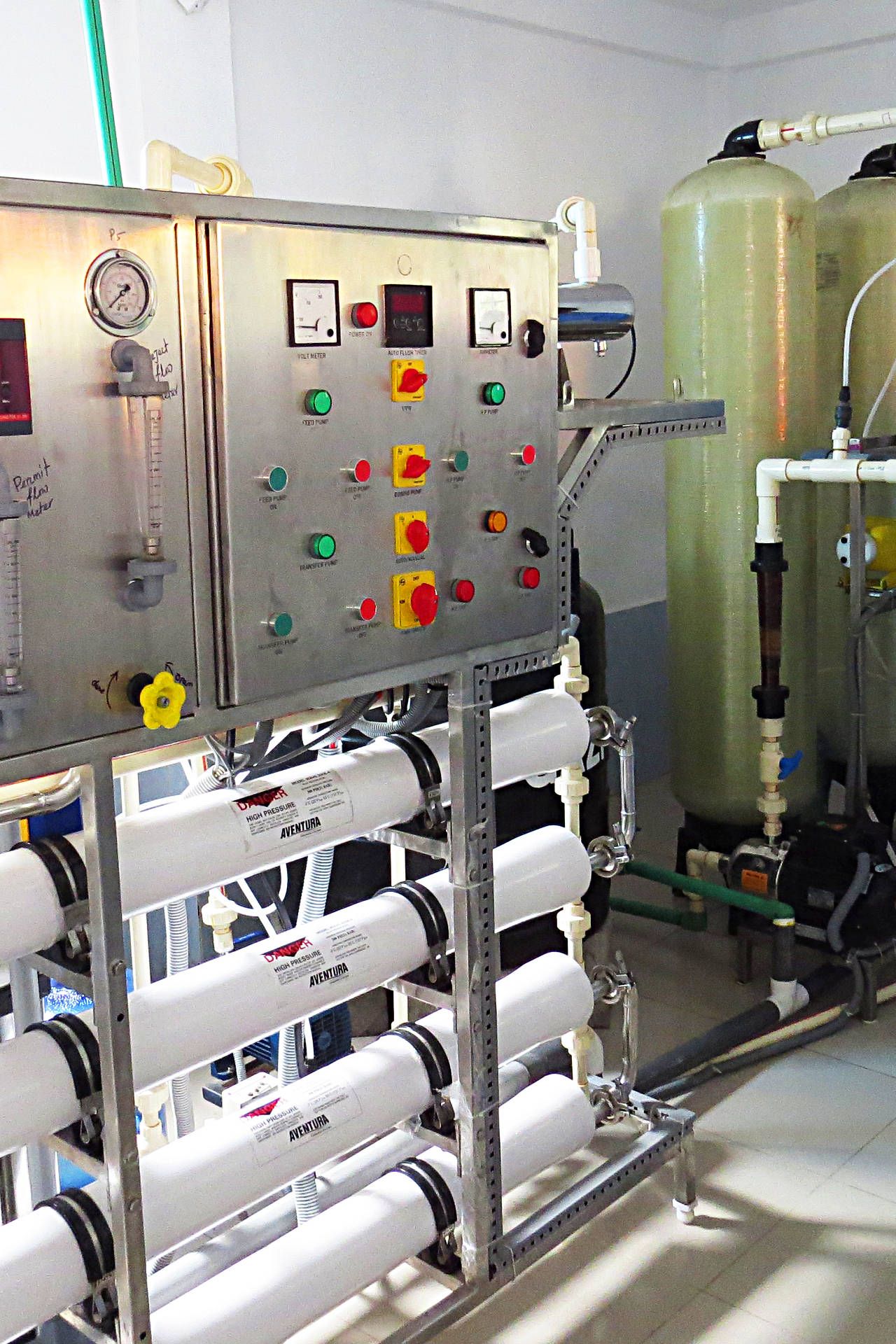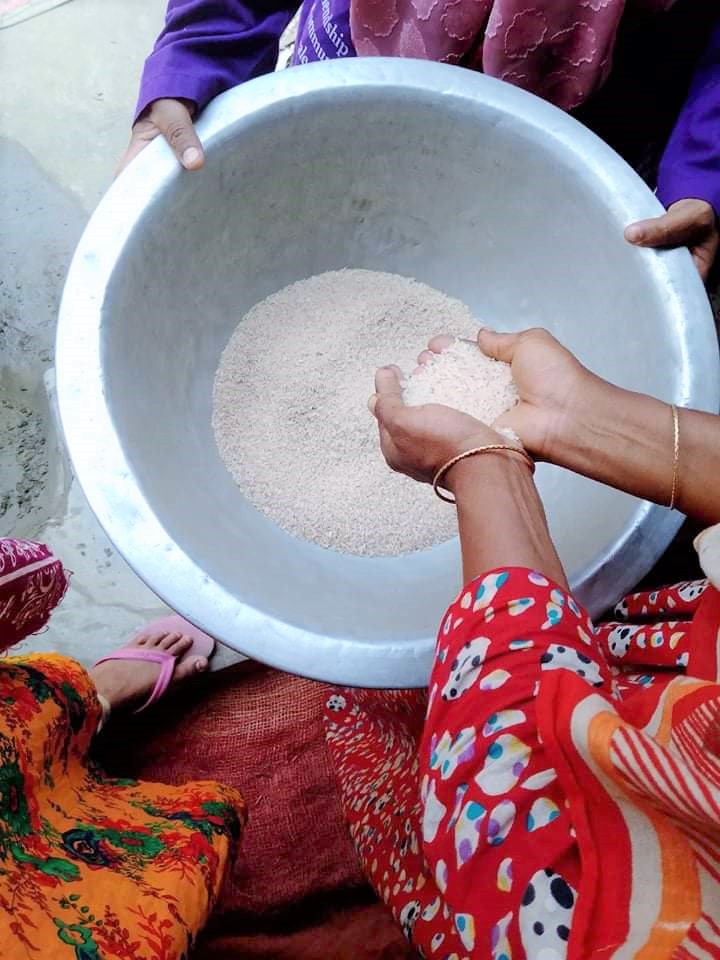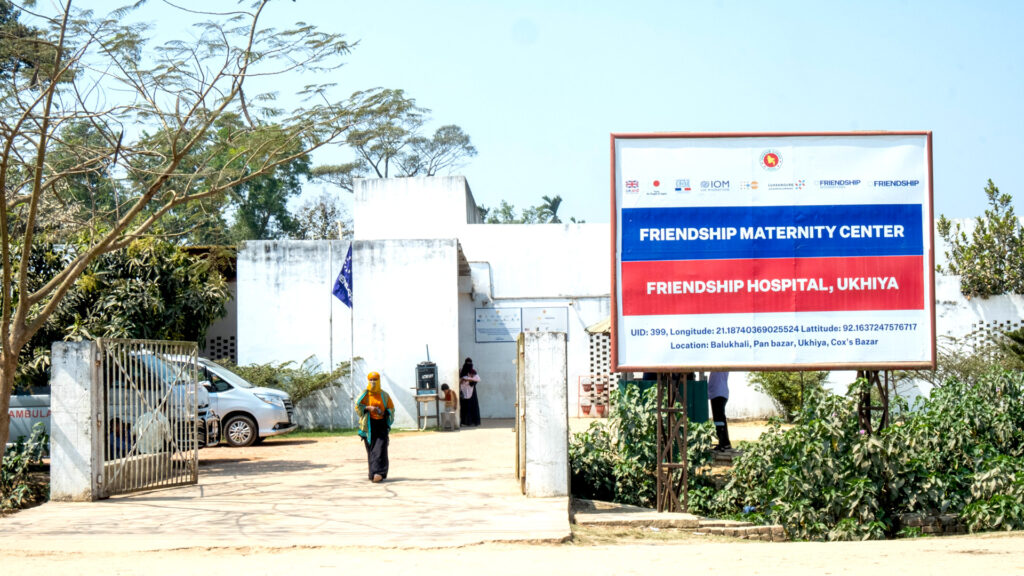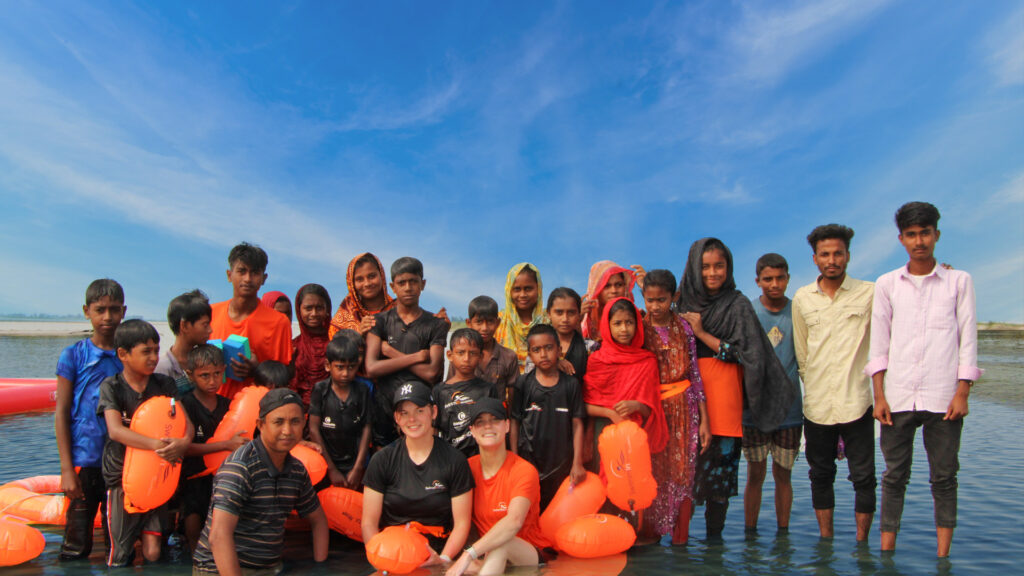Saving lives
Working in regions that are deprived of basic services, the first commitment of Friendship is Saving Lives.
Friendship began its journey with a hospital ship, which was the most urgent need of the hour when the organisation first started working in the riverine areas.
Access to healthcare is a fundamental human right and Friendship has built over the years a three-tier system that makes healthcare available to all.
Bangladesh is particularly vulnerable to natural disasters and Friendship also focuses its efforts on helping and saving people in case of disaster.
HOSPITAL SHIPS AND FRIENDSHIP HOSPITAL
SHYAMNAGAR
(TIER 1)
At the centre of Friendship’s three-tier healthcare system are its hospitals: two floating hospitals serving the chars (islands) on the Brahmaputra, and a land hospital in Shyamnagar on the coastal belt.
Many common, but debilitating conditions are seen in these regions, such as cataracts and clubfoot, which can be fixed by life-changing surgical interventions.
These surgeries aboard the floating hospitals give a new lease on life to tens of thousands of patients.
The hospitals also provide more extensive surgeries to treat burn victims, as well as paediatric, gynaecological, dental and eye care, consultations and medicines either free of cost or at affordable prices.
SATELLITE CLINICS and STATIC CLINICS (TIER 2)
The hospitals on their own cannot ensure that every individual in the surrounding communities is able to access healthcare.
Our mobile medical teams carry out weekly, fortnightly or monthly visits to isolated communities to perform courtyard sessions, where they inform communities about hygiene and nutrition and provide basic treatment and free medicine.
Satellite clinics also take healthcare to displaced communities during disasters.
The topography in the south of the country allowed us to build Static Clinics providing medical services to patients living in areas far from other clinics or from our land hospital.
Together with Satellite Clinics, these form the second in our three-tier healthcare system.
FRIENDSHIP COMMUNITY MEDIC-AIDES (TIER 3)
Friendship Community Medic-aides (FCM) are women from within Friendship’s working communities who are trained by Friendship to take primary healthcare, including health education and counselling, to the doorsteps of the communities.
Besides providing primary healthcare, some FCMs are specially trained as Community Skilled Birth Assistants (CSBA) providing ante- and post-natal care, safe deliveries and basic infant care. Their work has helped Friendship earn an effective and strong relationship with the communities based on trust.
MOBILE HEALTH APP
Friendship Community Medic-aides are equipped with a mobile-phone application that helps gather and store patient data, assist with diagnosis and allows FCMs to connect to a doctor whenever they need.
This app called mHealth has been developed in-house by Friendship.
The hospital ships remain connected via an innovative satellite technology, allowing harmonised patient records across all the facilities, and enabling them to connect to international hospitals and universities for advanced health consultations.
CYCLONE AND FLOOD SHELTER
We built a cyclone shelter in the south on the coastal belt and plinths (micro-villages raised above flood levels) in the north on riverine islands to protect people and their livestock when disasters strike.
This iconic cyclone shelter also serves as a primary school all year round. Shelters are equipped to accommodate all the basic needs of refuge-seekers including safe water and sanitation, and their livestock.
DISASTER RELIEF AND RESCUE
In times of calamity, Friendship delivers emergency relief services to remote communities and ensures their immediate needs are met.
Relief includes distribution of safe drinking water, of food parcels and essentials and immediate medical support to the disaster-affected communities.
Volunteers teams are trained in search and rescue techniques and connected to local government to ensure endangered people can get to safety.
WATER TREATMENT PLANTS
The coastal communities of Bangladesh are always in dire shortage of safe drinking water due to the extreme salinity in ground water, creating huge health problems.
We have installed six water treatment plants to make safe drinking water available at an affordable price for the most underprivileged segments of the population.
Communities helping themselves
During the Covid-19 shutdowns, many ultra-poor families lost whatever income sources they had, putting them at outright risk of starvation. Field level members of the Inclusive Citizenship team in Kurigram designed a food bank system through which solvent families donate rice, potato, lentils, etc., to those in need.
A similar programme was initiated in Gaibandha under the name mooth mooth, which literally means ‘a fistful at a time’.
Main actions
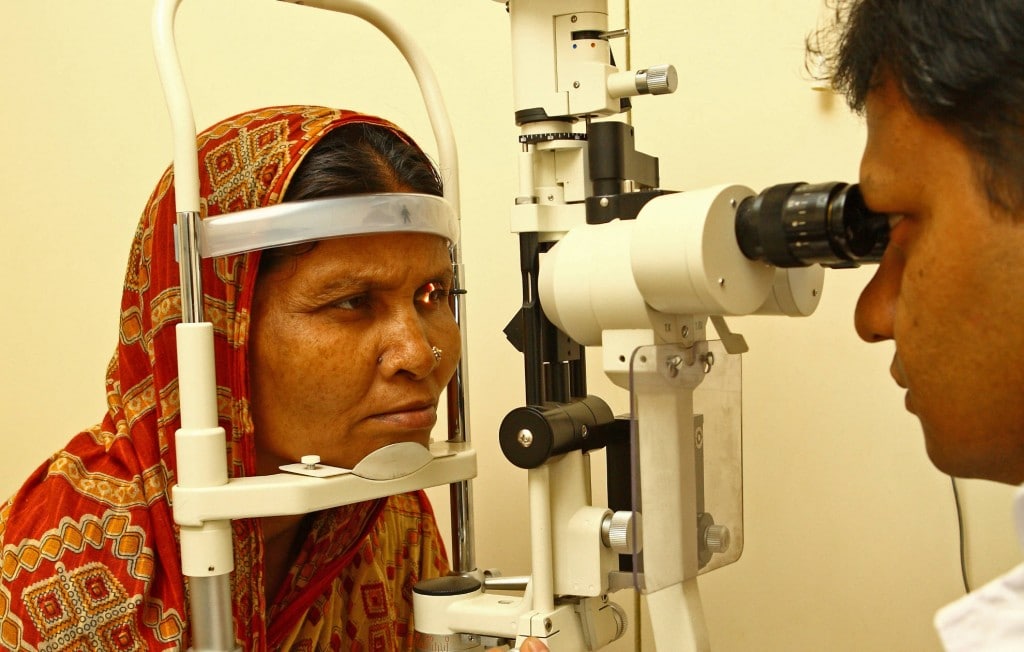
Specialized Medical Camps
Many afflictions that are common in rural Bangladesh, such as cataracts, can be cured with relatively simple surgeries. We bring in local and foreign specialists to perform hundreds of surgeries during intense medical camps in our hospital ships. These camps, free of costs for the patients, also conduct more complicated procedures like reconstructive surgeries for burn victims.
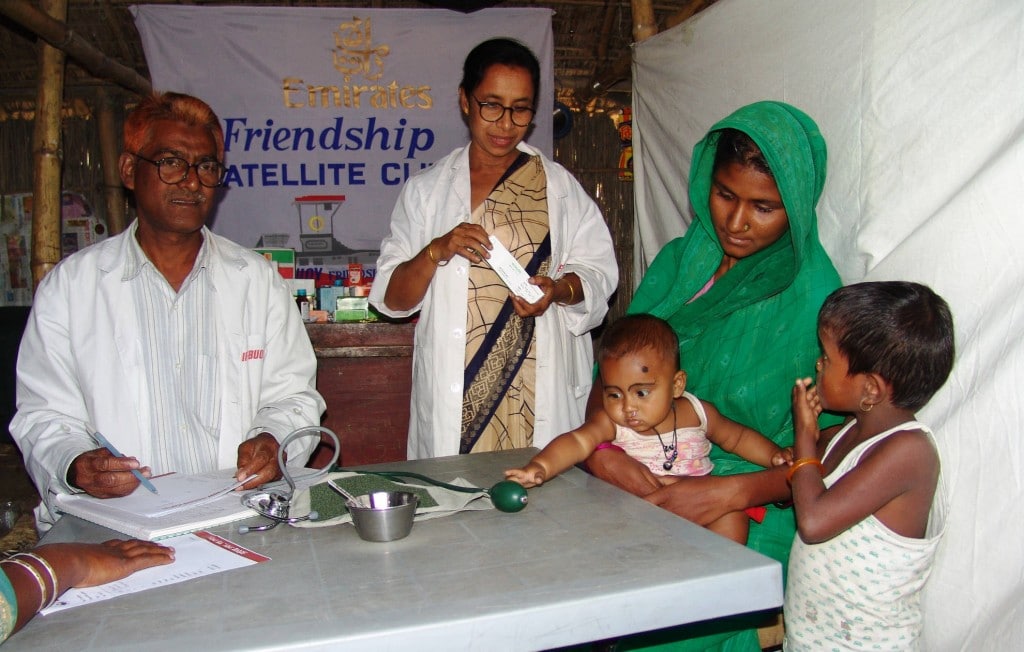
Immunisation of Children
Government immunisation drives have often skipped char areas because of the remoteness and difficulty in accessing the islands. Friendship facilitates full vaccination coverage of over 6,500 char children every year in cooperation with the Bangladesh Government health authorities through transport and logistical support.
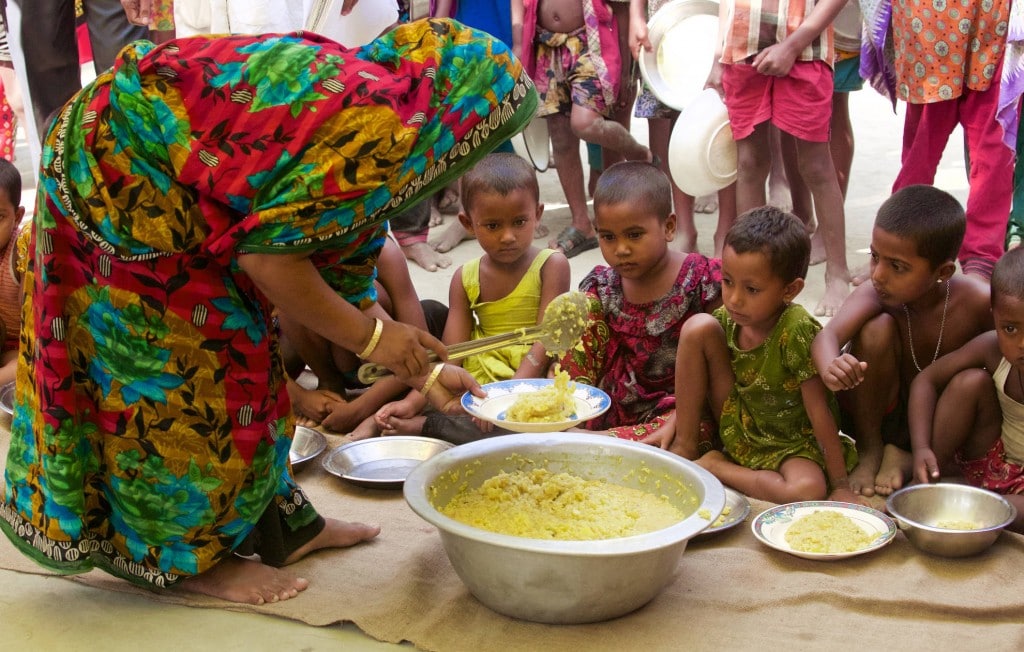
Ante-natal & Post-natal Care and Nutrition
Community Skilled Birth Attendants (CSBAs) recruited and trained from working communities ensure that mothers and children are monitored throughout pregnancy and given regular follow-ups. During satellite clinics sessions, diet and nutrition training sessions are provided to ensure mothers and children receive sufficient nourishment. CSBAs also provide referral services in case of complications.
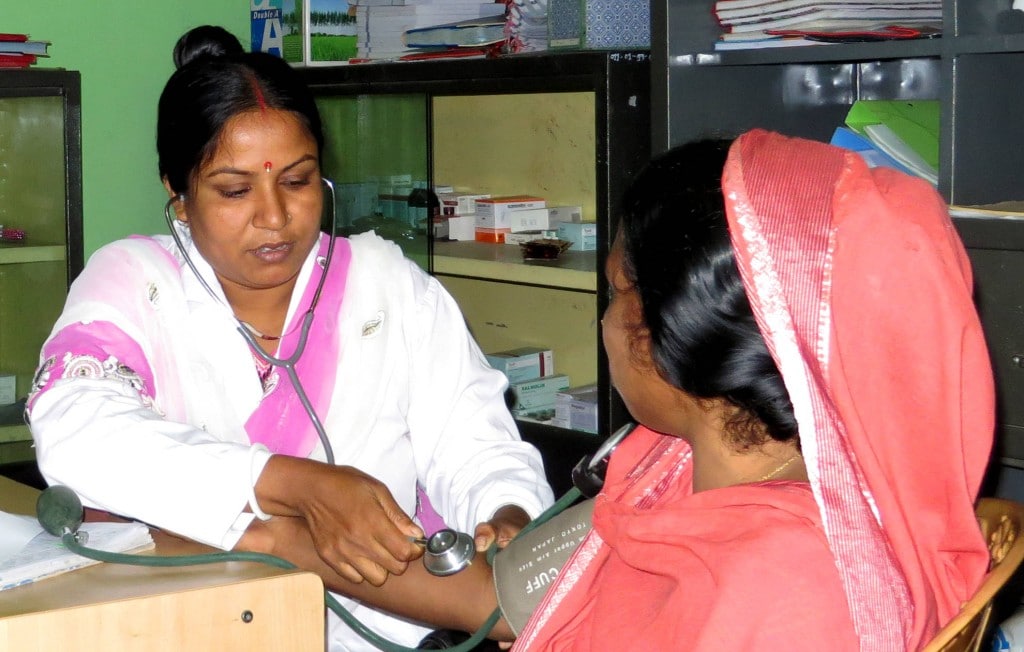
Cervical Cancer Screening
Widespread child marriage and early pregnancies in remote rural communities often cause cervical cancer, which if detected early, can be easily treated. We annually screen more than 18,000 women and treat approximately 150 women for pre-cancerous lesions under Friendship’s cervical cancer programme.
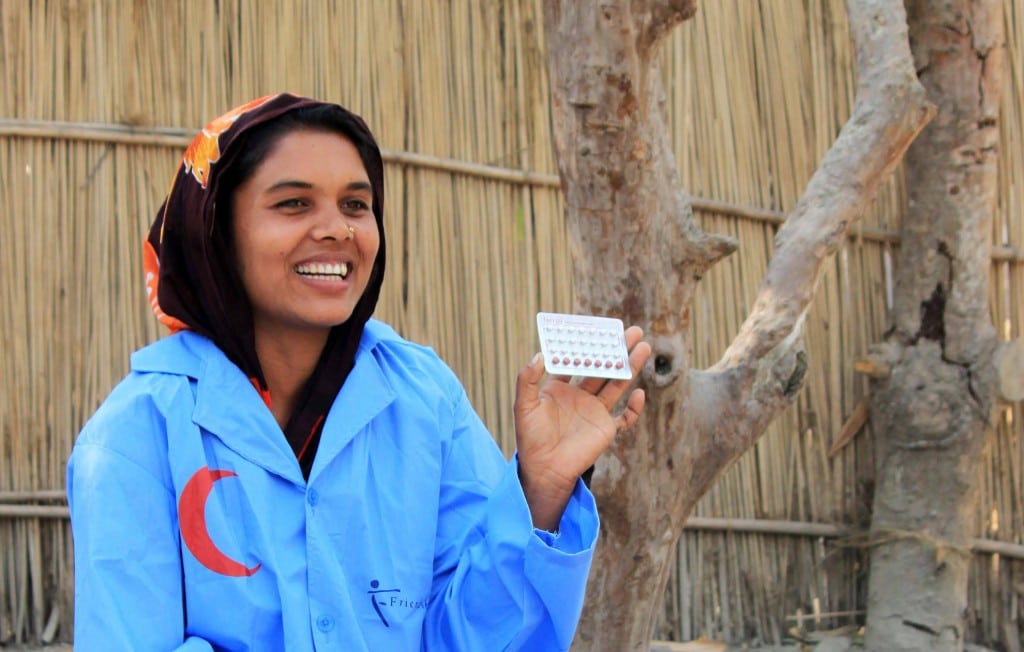
Family Planning
Friendship Community Medic-aides (FCMs) regularly visit households in their villages to ensure each have access to healthcare and medication. They help break down social barriers and promote family planning, making it more widely available by creating awareness and distributing contraception.
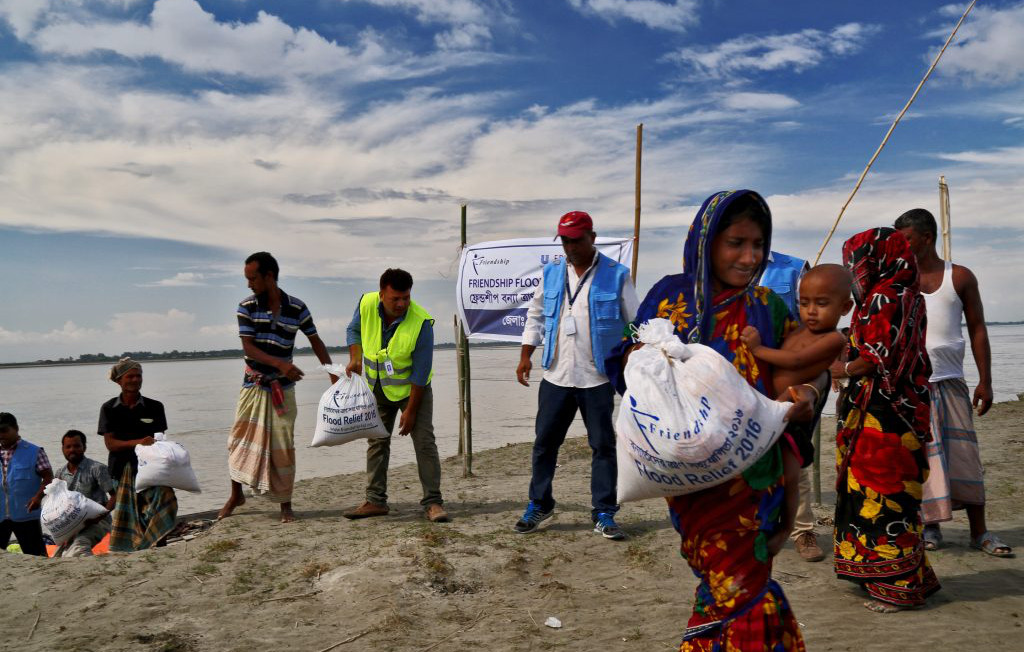
Food Relief during Crises
During disasters, communities often lose access to immediate necessities such as food, water, transport and sanitation. Friendship distributes emergency aid packages and ensures that every family’s basic needs are met in our working communities.
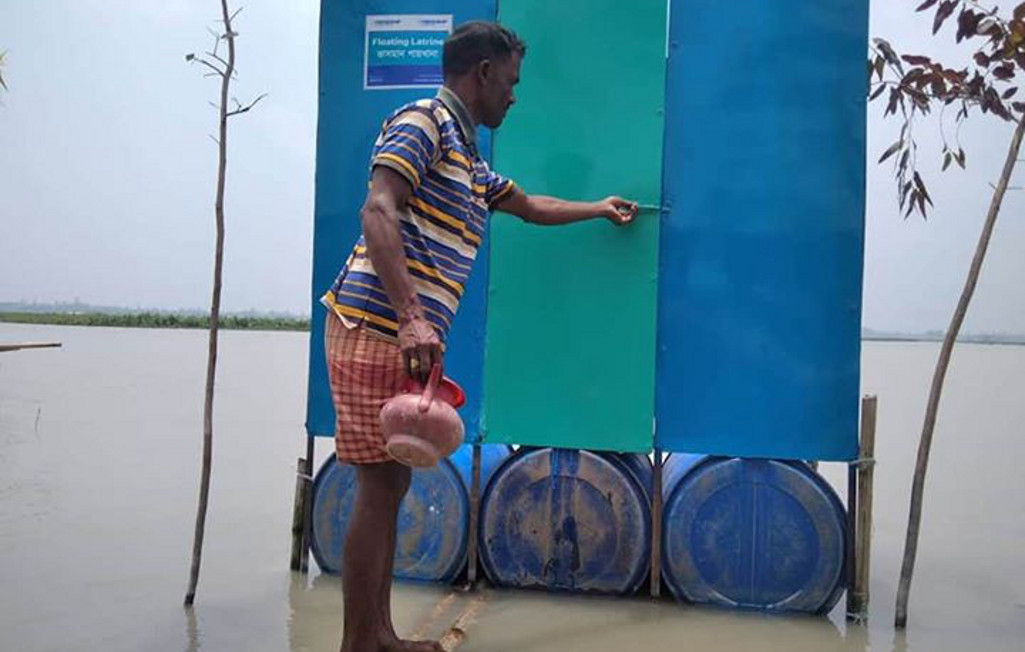
Emergency WASH Support
During floods and cyclones, communities often lose access to clean water and sanitation. As a priority, Friendship provides safe drinking water. Then, we install tube wells and latrines, modified for use during emergencies. An example is the floating latrine, invented by our engineers. Friendship also trains mechanics to repair tube wells damaged during disasters.
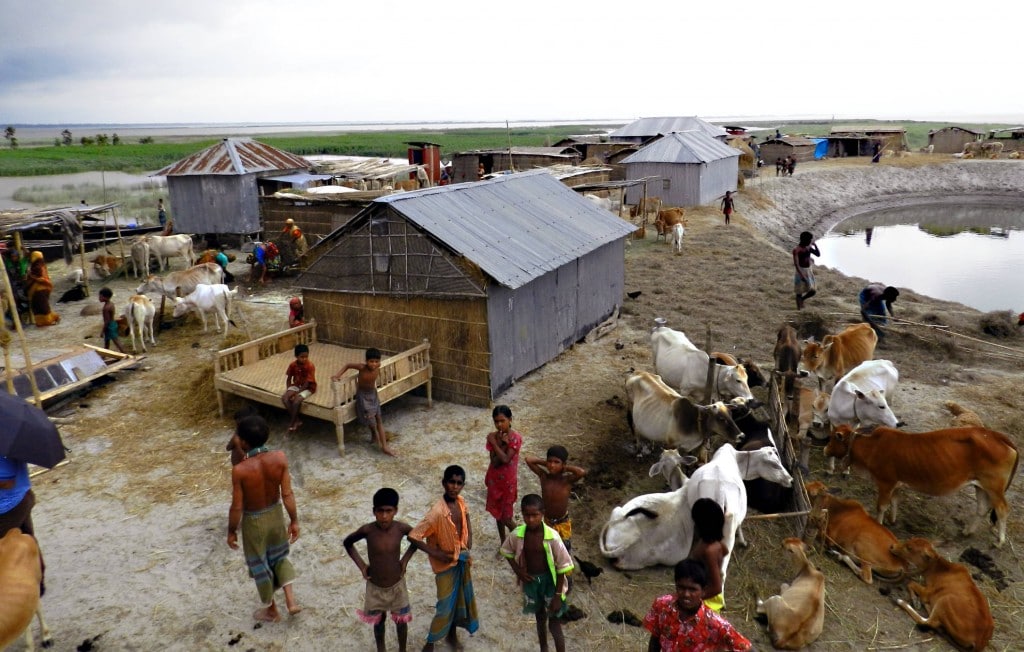
Awareness of Health Hazards Related to Agriculture
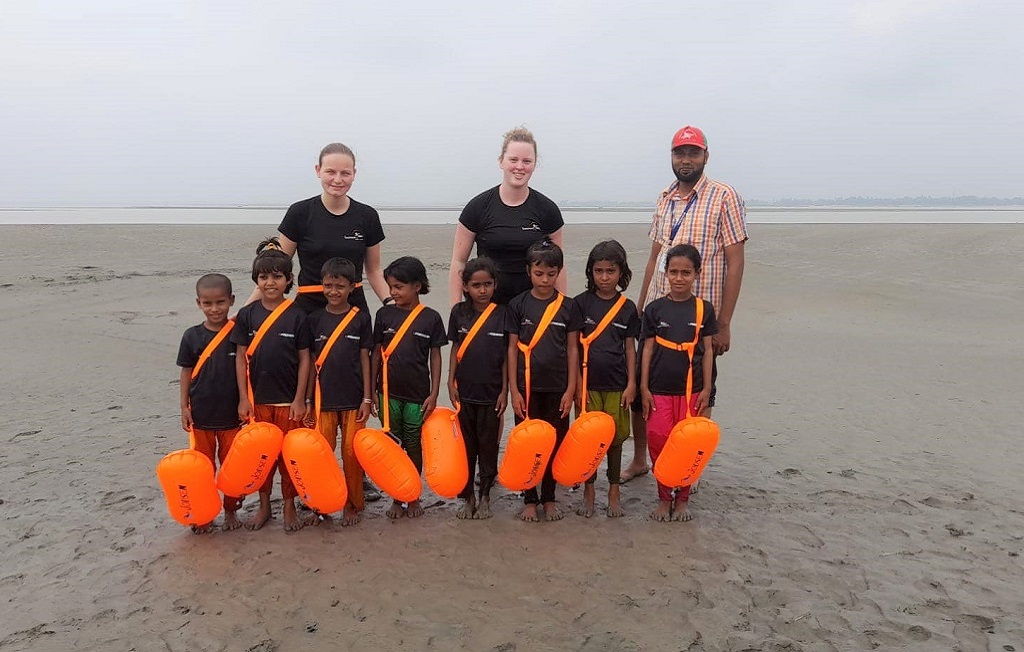
Swimming training
Drowning is one of the most prevalent causes of death in rural communities, particularly during floods. To prevent drowning, the Dutch organisation Swimmin’ Bangladesh Foundation has been training Friendship School students to swim since 2018.
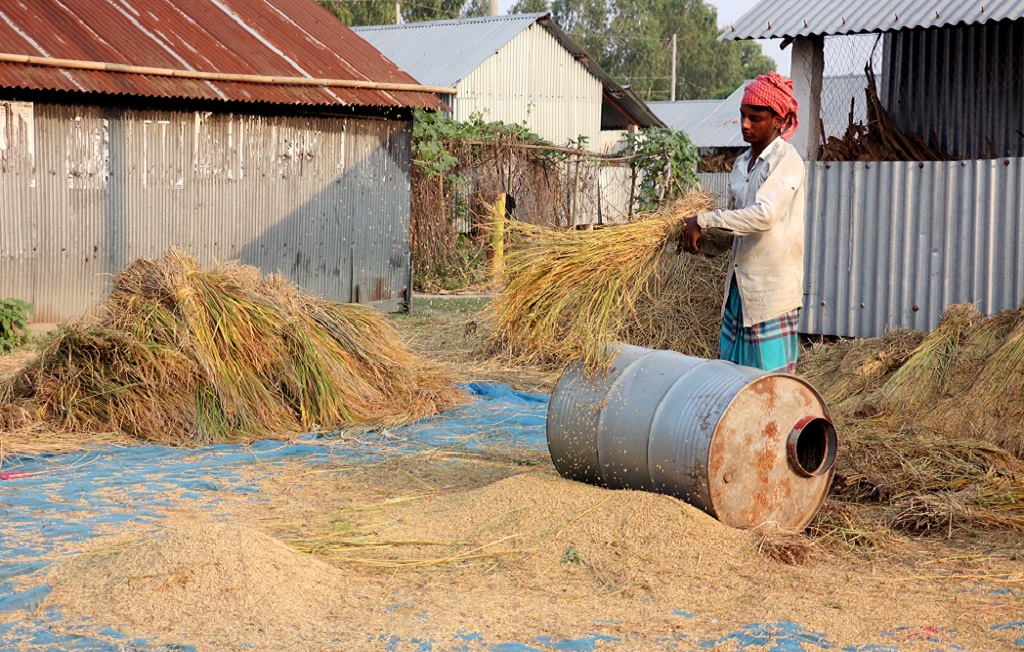
Growing immunity-boosting food
We sensitise, demonstrate and motivate our farmers to grow products that are nutritious, local and organic, and in a way that enriches the natural ecosystem. The Department of Agricultural Extension (DAE) supports these efforts with training.

